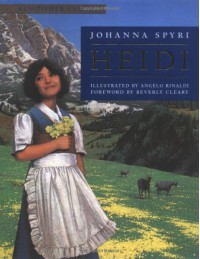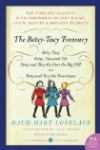11
Followers
23
Following
Reading Slothfully
I was told in elementary school that I only could read at half the speed for success in college. Oh well, one benefit of slow reading is you get to live with the characters a longer period of time. I read in a vain attempt to better understand people. At my other homes, I'm known as a spouse, pop, guy in the choir, physical chemist, computer/web dilettante and child-care provider. In theory, I'm a published author, if you consider stuff like Quenching Cross Sections for Electronic Energy Transfer Reactions Between Metastable Argon Atoms and Noble Gases and Small Molecules to count as publications. I've strewn dozens of such fascinating things to the winds.
Currently reading
Twenty Thousand Leagues Under the Seas
The Spirit of the Border
Ramona the Brave (Ramona, #3)
The Underground Man (Vintage Crime/Black Lizard)
Delilah of the Snows
Mrs. Miniver
Betsy-Tacy Treasury (P.S.)
A Christmas Carol
The Way Some People Die
Envy of Angels
Heidi
 Every once in a while, I figure I should read a book which was considered to be a childrens' classic back when I was a child, but which I missed for some reason. Things like Little Lord Fauntleroy, Anne of Green Gables, The Wind in the Willows, and now, Heidi.
Every once in a while, I figure I should read a book which was considered to be a childrens' classic back when I was a child, but which I missed for some reason. Things like Little Lord Fauntleroy, Anne of Green Gables, The Wind in the Willows, and now, Heidi. So,we begin with Heidi as a 5-year old. Her Aunt Deta is taking her up the mountain to dump her at her grandfather's cottage. Grandfather is a grumpy old guy with whom no one has had contact for years, at least not willingly so. Deta wants to go to town to get a job and be able to afford fine clothes, and taking care of her late sister's daughter was a hindrance to her. So, Heidi gets dumped.
It turns out that the old guy is either not so bad, or else that Heidi is such a force of sweetness and light, that she mellows him. Whatever, the two of them get along just fine. Heidi makes friends with Peter, the local goat herd, and spends much time among the flowers and goats in the pastures up the Alp. It's a wonderful life.
A few years later, Aunt Deta comes back to reclaim Heidi. She has a scheme to dump Heidi in the household of a rich man with a disabled daughter, Clara, to become Clara's companion. So, Heidi finds herself in the city and is miserable. No stars, no flowers, no goats.
Clara's grandmother shows up for a while and schools Heidi in Christian forbearance and so forth. This book is full of old-fashioned Christian piety from an earlier generation. Being an elderly, repressed Calvinist myself, a lot of it sounded familiar, so it didn't much bother me. It might, possibly bother more modern readers.
Anyway, because this book was meant to be extraordinarily uplifting, Heidi's sweetness and light burns brightly and vanquishes the shadows of darkness and all live happily ever after...or something.
I rather liked this book, but it was pretty saccharine in parts, and might not make much sense to modern youngsters.













